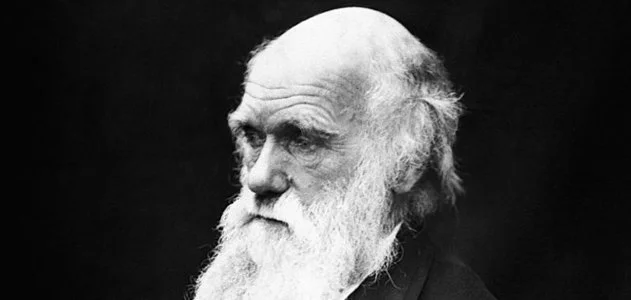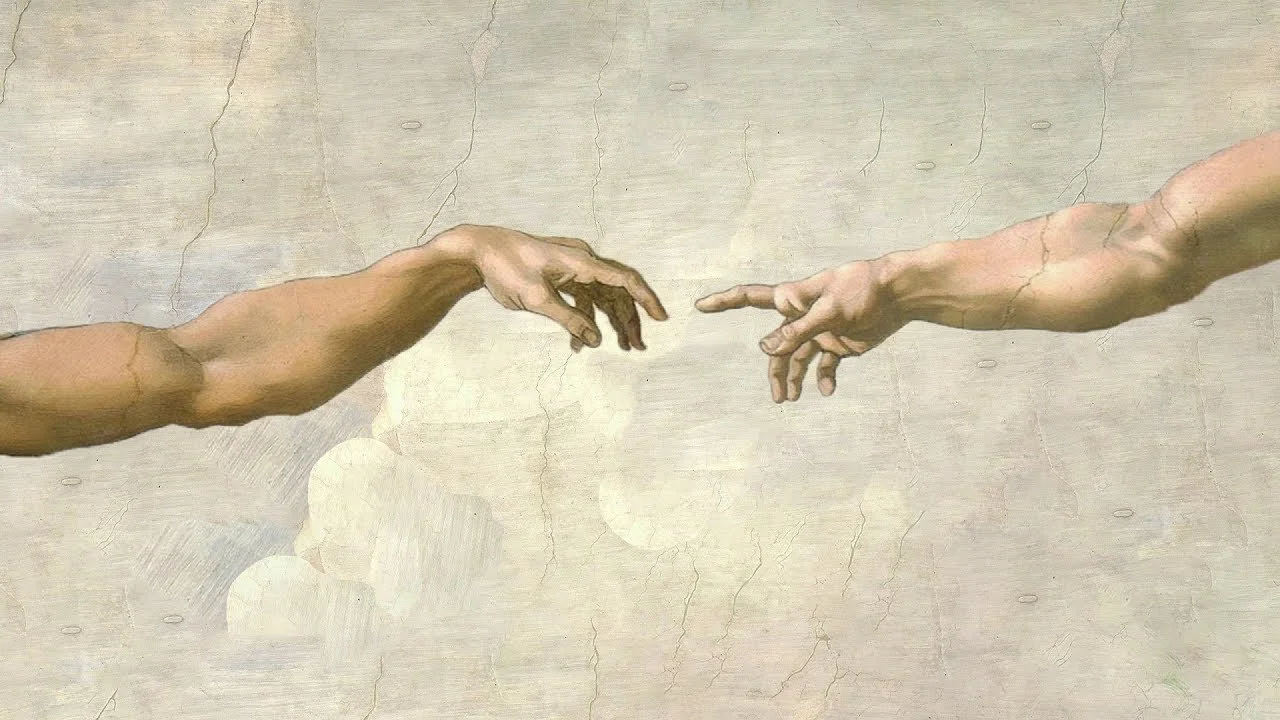What the Death of Darwinism Looks Like
Tommy shouted “Hey,” at the gorilla thirty feet away, hoping, like all boys do, that the big animal would look at him and nod and then pound his chest and grunt. But the gorilla just sat there, impervious to the shout of an eight-year-old boy, chewing contentedly on the orange the zoo employee had just thrown it right before Tommy and his first grade class had come up to the railing in front of the exhibit.
“These,” their guide began saying in his best talking-to-children voice, “are Western Gorillas.”
Most of the kids were now leaning up against the railing and staring at the male silverback Tommy that had shouted at. The muscles of his shoulders and chest looked as though his skin had just barely been able to be stretched over them. He put the rest of the orange in his mouth and then stood up and stretched his arms over his head, his muscles looking like liquid steel as he did. There were a few “Whooahs,” and a “He’s bigger than Daddy,” as the guide said, “These creatures were made by God with lots of really cool features. I want you guys to look at his hands there…”
Diane was nervous, and her aged mother knew that she was because she was playing with her hair, twirling it around with her right index finger. Ever since Diane was a little girl, she had done that when she was anxious. Her mother patted her knee and then gave her leg a gentle squeeze just before the doctor opened the door and came in with his dark brown folder and his bright white lab coat and his well-trimmed salt-and-pepper beard. The mother wasn’t nervous herself, even though the diagnosis would be hers. But that sort of tranquility comes with time and suffering and Christ having proved Himself to a heart for a few more decades than Diane had yet experienced. So the mother smiled while her daughter didn’t, and the doctor sat down on the chair to their left and began.
“There is a spot here that I’m concerned about,” he said, not even looking down at his folder but with their all knowing together it was what was inside it that concerned them all at this point. “There are a few things it could be, and the words for each sound scary, and it is serious. But I want to start by just saying: God made your body, and we know the different parts fit together and have purpose just like He intended. We’re going to have some treatment options to discuss, but I find it helps to start with that framing.”
Diane stopped twirling her hair. Her mother squeezed her leg again.
Meanwhile, across the street at the natural history museum, a teenage boy was reading a plaque on the single exhibit that described the theory of evolution and some of its ignominious effects, including eugenics and despair. The wax figure of Charles Darwin wasn’t particularly dour, but the still images of Adolf Hitler and Margaret Sanger just behind him certainly left a very foul impression. The young man read the plaque. It described the theory that genetic mutation followed by the fittest of those mutations surviving in the mutated and their being reproduced, and this regular and constant event among living things being the cause of all the variety of life on Earth. As he read this, he increasingly had the look of a man who has just drunk milk three weeks past its date.
“I can’t believe people believed that.”
Imagine every child on your street knowing, just as surely as they know that snow and rain are both water and that we read sentences from left to right, that God made birds and worms, raccoons and rhinos, and that He made us. What if tomorrow every one of them knew it in their bones? How would their view of babies and old people and folks in wheelchairs and the face they see in the mirror be affected? How will their view of what boys and what girls are be affected?
I didn’t realize until the last few years how much Darwinian presuppositions had gotten into my view of the world when I had been a young man. As a teenager and even in my early twenties, when I’d watched science fiction movies that assumed natural selection and macro-evolution were what produced us, I was left with a slightly depressed, disenchanted, hollow sense of the world around me and my own worth and significance in it. Even though I was a Christian, the belief that what I was wasn’t made by God but instead of showed up because of eons of a thoughtless biological process occurring had gotten into my heart and the way I looked at the world and people. I wasn’t sure what I believed about evolution, but I suspected its core elements had to be true. It’s what I’d been taught in my public education, and it’s what, it seemed to me, every intelligent and respectable person I knew of who spoke on the issues of humanity’s origins would say. People came from evolution. Survival of the fittest is what made us us.
Roughly a decade ago, however, I gave up the fight against what I’m convinced is the plain and proper interpretation of early Genesis: God made the earth, all the countless stars outside her, and all the precious life on her in those six days He describes in chapters 1 and 2. He did it directly, and when He was finished with those acts of direct creation He called it all good, and so it was. It was the sin of the first man and his wife that ushered death and all its attendant afflictions into the world when they disobeyed God and sinned. Because of their sin, what was once good was now damaged, though not abandoned nor unmade. In short, I adopted young earth creationism and God’s own direct creation of animals and people, elements and forces, and as I did the world seemed fuller and brighter, and my own posture towards it (as one called to Godly dominion) and Him (as steward representing Him here in His creation) healthier.
Darwinism will one day die, like all falsehoods do. Lies do damage, because they all fundamentally misrepresent God and His world, but a misrepresentation can only last so long in the face of reality and her Author. Eventually lies crumble under the weight they can’t bear. Darwinism is out of joint with the world as she truly is. We are not here because of mutation and natural selection. Stars did not develop merely from a gravitational law that is untethered to a Lawgiver. The oxygen and nitrogen we breathe in every few seconds is no accidental blend of elements and chance. We have been gifted a world by a glorious Giver.
Darwinism kills what it touches. It kills it by robbing it of the true quality of life and vigor and purpose that God placed into it. It says humans have no more inherent dignity than earthworms, and life has no more intrinsic meaning than death. Darwinism smothers the Imago and obscures the Dei.
Orcas and crayfish and every one of our neighbors are the result of God’s authorship of the world we live in, under, and on. Groaning and fractured from sin as that world is, we are made. And when Darwinism draws its last gasping breath, the air will again seem as lively as it really is.

